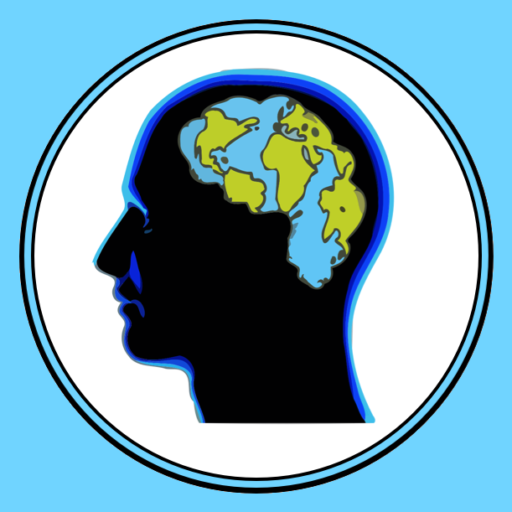The most important discovery I ever made in my life came to me at the age of 16 years old. In a nutshell, I had become aware that I was standing in the wrong cathedral, and that I needed to move to a place where belief was not based on unquestioning faith, but on the healthy scepticism of science. The problem being that my quest for answers was showing me, more and more, that my religious belief was just hubris and wishful thinking. Finally, I was finding the courage to look out at the blackness of space, and see it on its own terms, rather than through some quite beautiful but heavily stained glass. My religious faith, put there by the school I had no choice in, was being steadily blasted away by the call of the Sciences. A call which led me to think of this new and far greater cathedral of science as the universe itself. A place in any case where the stories told are infinitely greater and more extraordinary than any of those little fairy tales that us humans dream up, and indoctrinate our children to believe in.
Of course, it was not as easy as that, and it took a good long struggle between my thinking cortex and my primitive brain stem to liberate myself from the religious ideas of my childhood. Nor would it be true to say that I never looked back. Because early religious training leaves deep baptismal watermarks that are hard to wash out, and it took quite a long time to really emerge free from its neural stains. But now I look back in easy freedom at those past convictions. Happy that I had the experience, whilst drawing on it as a means of understanding those very many of us who are still within its potent and restrictive grasp.
But from then on, I was free to ask as many questions as I wanted to, and the discovery that there was no god or supernatural force in the universe created shafts of light everywhere I cared to look. Because now I could use what we know from science to make a clarifying sense out of all around me. Then, in 1971, two critical events occurred in my life. One, I entered for Oxford, and was offered a place at The Queens College to do either Zoology (my choice by default), or a new course called ‘Human Sciences’. I decided to go for the latter, and began to explore just this one species. (The other event? Katia, my future wife, was born, and in cold war Russia at that. So if anybody had foreseen this, and told me as I walked across front quad that this was the case? Well, it would have seemed both impossible and incomprehensible).
So, the idea of the Human Science course, certainly as far as I, and a number of the other students was concerned, was to revolutionise our understanding of human behaviour. A revolution that would put the social or human sciences on a par with their older brothers, the physical and biological sciences. A ludicrously ambitious ideal, but quite appropriate to both our young age, and our state of excitement with ideas. Anyhow, we had some powerful illuminati to assist us in this quest – Walter Bodmer, Desmond Morris, Geoffrey Harrison, Richard Dawkins, and the eminent Niko Tinbergen (Nobel prize winner for his work on animal behaviour), as well as Sir Evans Pritchard and Edwin Ardener in anthropology. And it was while chatting to Professor Tinbergen at the end of a seminar, that the idea of a ‘science of meaning’, rather than a human or social science, came to me.
The thing is, I had been having some real trouble in identifying the central focus of all the various -isms, -ists and -ologies that make up the social or human sciences. Because, rather like the mythical tower of Babel, it seemed to represent a great mix of mutual unintelligibility and confusion. Surely, I reflected, a centralised and unified theory was what was needed here? So I talked to the professor, and in particular, I suggested to him that what we should be, above all, pursuing the nature of meaning (the master category for all our hopes, plans, needs, fears and human purpose). Indeed, I argued that the central aim of the social sciences should be just that – a ‘Science of Meaning’. Well, after some discussion, it turned out that the professor agreed with this, telling me that he thought it was a powerful idea. In fact, to my delight, he was really enthusiastic that I should pursue it, and also do the work on humour that I had mentioned to him in order to showcase how this might work. Well, I walked out of seminar room on air. Given such a reaction – from a thinker as experienced as Tinbergen, my path was set. Okay, it was already set, but now it had the approval of somebody I really respected, which helped a lot, because the way forward was hugely daunting, and possibly rather daft.
After this, the continuance of my course at Oxford became a slightly surreal exercise. I knew where I wanted to go, and studies in population genetics, animal behaviour, demography, statistics, social anthropology and so on were great if I wanted to become a social or human scientist, but they offered no real help in my new found quest to chart the contours of human meaning. Yes, it was useful, and indeed interesting to follow these many different disciplines, and I am certainly glad I did so. But following them only served to underline the necessity of tackling the central problem of the social sciences – which is not the brain itself, but what’s in the brain, and not just in the human brain, but in the processor of any intelligent life anywhere in the universe. Meaning ‘Meaning’.
alaric.wyatt@gmail.com
